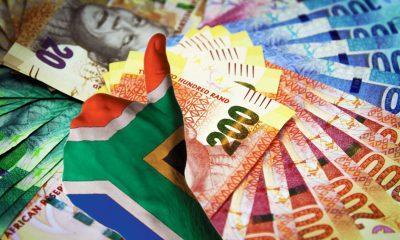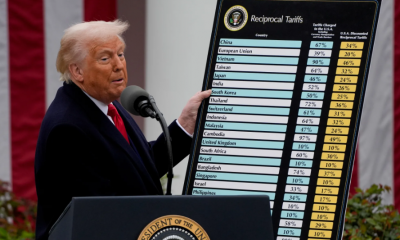Business
South Africa Eyes 2% GDP Growth in 2025 as Agriculture Rebounds

South African economists predict a much-needed economic rebound in 2025, with GDP expected to grow by nearly 2%. The forecast is driven by an agricultural sector recovery, improving infrastructure, and a stable inflation outlook.
At a panel discussion on Wednesday, Johann Els, chief economist at Old Mutual Group, projected a GDP growth rate of 2.2% for 2025. He also forecasted inflation to average 3.8%, supported by expectations of two interest rate cuts of 25 basis points each next year.
Els expressed optimism about the rand’s performance, predicting it will strengthen to R17 per US dollar by the end of 2025. Additionally, he suggested that South Africa’s credit rating outlook could soon improve from “stable” to “positive”, thanks to political stability and fiscal discipline.
Key Drivers of Economic Growth
One of the biggest factors boosting economic confidence is South Africa’s recent extended period without load shedding. Reduced power cuts have helped businesses operate more efficiently and boosted investor confidence.
Els also pointed to the Government of National Unity (GNU) as a stabilizing force, creating favorable conditions for investment and economic growth. He urged Finance Minister Enoch Godongwana to take a fiscally conservative approach in the upcoming Budget Speech, focusing on reducing deficits and maintaining primary surpluses.
Agricultural Recovery to Support Growth
Wandile Sihlobo, chief economist at the Agricultural Business Chamber of South Africa (Agbiz), emphasized that the agricultural sector will play a major role in South Africa’s 2025 economic growth.
Despite drought conditions in 2024, improved rainfall patterns are expected to support a strong agricultural recovery. According to preliminary data from the Crop Estimates Committee, South African farmers have planted approximately 4.45 million hectares of summer grains and oilseeds, slightly higher than the previous year.
Other positive factors include:
- Improved disease control: Efforts to manage foot-and-mouth disease and avian influenza are helping to revive the livestock and poultry sectors.
- Higher dam levels: More stable water resources will improve irrigation for key crops.
- Better infrastructure: Addressing port inefficiencies and road networks is crucial for exports.
Sihlobo noted that while progress is being made, South Africa must continue improving export strategies and logistics to remain competitive in global markets.
Political Uncertainty Remains a Risk
Despite the economic optimism, political risks remain a concern, especially with the 2026 Local Government Elections approaching.
Political analyst Prince Mashele warned that the African National Congress (ANC) could lose more votes, leading to an increase in coalition-led municipalities, which may disrupt service delivery and economic performance.
“Service delivery is already struggling, and with more coalition-led municipalities in 2026, the situation could worsen, impacting economic stability,” Mashele said.
With economic recovery on the horizon, South Africa is poised for a GDP growth of around 2% in 2025. Improved agricultural performance, fiscal responsibility, and political stability are key to sustaining this growth. However, challenges such as infrastructure issues, political uncertainty, and export logistics must be carefully managed to ensure long-term economic success.
Follow Joburg ETC on Facebook, Twitter , TikTok and Instagram
For more News in Johannesburg, visit joburgetc.com



























